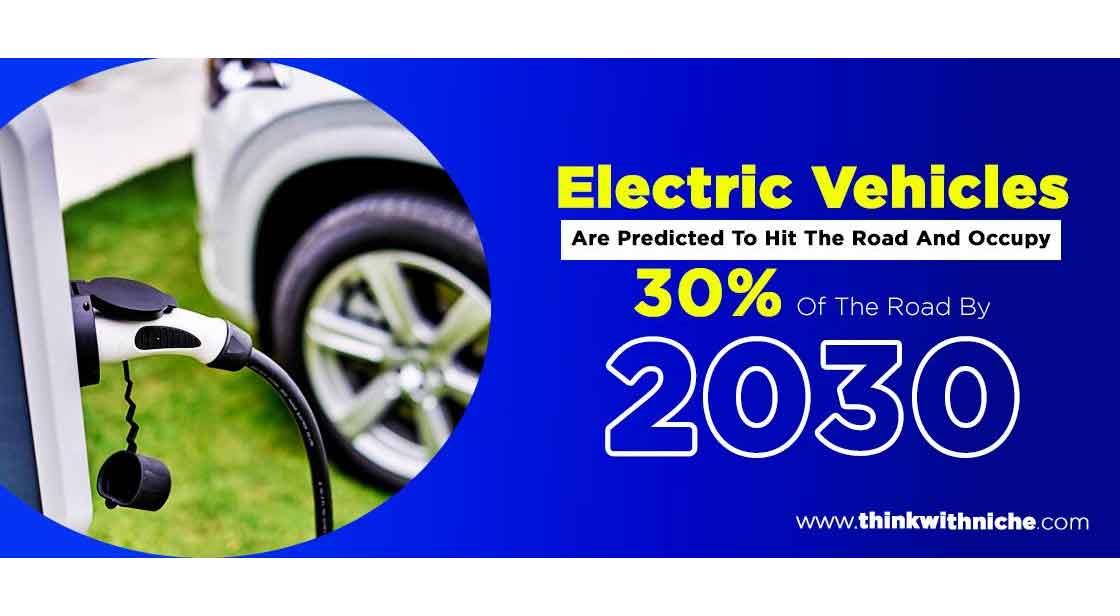Electric vehicles are predicted to hit the road and occupy 30% of the road by 2030

News Synopsis
Latest Updated on 10 January 2023
Electric cars had been getting popular in the automotive business before the COVID-19 pandemic struck it and every other industry. For the first time in 2019, the total yearly sales of battery electric cars and plug-in hybrid electric vehicles topped the two million vehicle mark. Even if economic instability and shifting consumer priorities may have overshadowed this much-anticipated milestone it is still important to evaluate the state of the electric car market.
The electric vehicle market has advanced significantly since Deloitte last issued a sales forecast in January 2019 and not just in terms of revenue. OEMs have spent a fortune on everything from R&D to reworking facilities to offer new electrified models. Consumer behavior is changing. Governmental initiatives have moved forward and then retreated. Then COVID-19 completely disrupted global commerce and manufacturing. A revised forecast based on new data is required in this scenario.
We have drawn a conclusion on how the industry will develop over the coming ten years by monitoring the status of the EV market globally and noting the numerous factors promoting growth in various directions. For major OEMs, new OEM entries, captive financing providers, and dealerships the significant growth of EVs up to 2030 will bring both significant opportunities and problems. This research contains data that can help traditional OEMs re-prioritize their customers and strategy in a competitive environment that is unknown.
Developing a fresh strategy for market segmentation is important to maximizing possibilities and controlling risks. We present one such strategy in Part 2 and use the United Kingdom as a use case to teach and motivate OEMs and other global players. We can accelerate past the challenges the epidemic has brought and toward a future where electric vehicles take center stage by using today's insights to power the journey over the next 10 years.
Last Updated on 10 September 2021
If this plan is well executed it would be a massive step in the lessening of pollution at a great scale. And not just regulation of pollution there will be far more benefits like employment the establishment of electrical pumps and the saving of non-renewable resources. It is to be noticed keenly that electric vehicles will now be introduced to the public sector which will reduce the emission of CO2, CO, SO2, etc on a large scale. And this boosted head-start will not only provide these benefits, but it will also turn around the thinking of common people and will bring about a great change in their choice of buying an electric vehicle over a petrol/diesel/CNG powered vehicle.